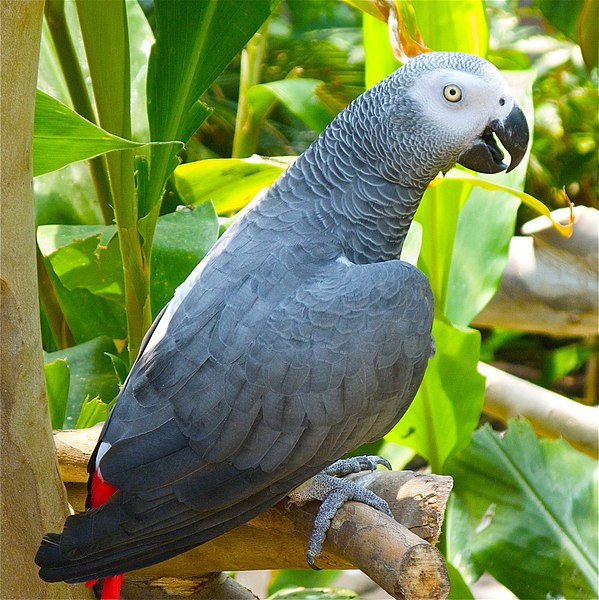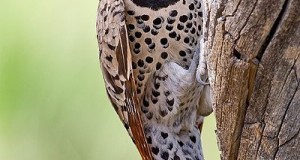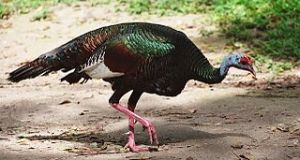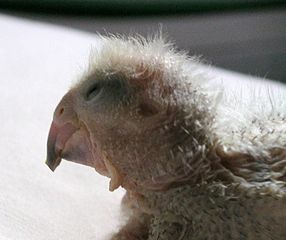I’ve been writing quite a bit about the trade in wild-caught African Gray Parrots in recent weeks. In stark contrast to most countries inhabited by parrots, several African nations still allow the capture and sale of wild birds. In others, lax enforcement renders existing laws useless. There has, however, been a recent spate of confiscations in Africa, but not all have turned out well….in one instance, government officials of the Democratic Republic of Congo actually returned hundreds of illegally collected parrots to poachers (please see article below)! Today I’ll highlight some good that may have come from a particularly sad situation.
750 Parrots Die on Plane in South Africa
 In December of 2010, 750 wild-caught African Gray Parrots died while on a flight from Johannesburg to Durban, South Africa. According to officials of the airlines involved, 1 Time Airline and Bid Air Cargo, the tragedy spurred an internal investigation into their animal handling practices.
In December of 2010, 750 wild-caught African Gray Parrots died while on a flight from Johannesburg to Durban, South Africa. According to officials of the airlines involved, 1 Time Airline and Bid Air Cargo, the tragedy spurred an internal investigation into their animal handling practices.
World Parrot Trust Africa, the Wild Bird Trust, and other conservation organizations were called in as consultants. As South Africa had exported 25,000 African Gray parrots in 2009 and imported an additional 5,000 birds (all wild-caught), the effects of any positive changes that result may be very important to the species’ survival.
Important Considerations
Early on, the important point was made that regulations designed with captive-bred birds in mind were likely not effective in preventing stress-related deaths among wild parrots.
Another very promising step was the inclusion of zoologists and conservationists in the process. It is expected that doing so will enable airline personnel to more effectively identify protected species and report violations while providing for the welfare of legally shipped animals.
The New Regulations
Some of the planned changes at South African airports include:
Separate animal-handling facilities staffed by specially-trained workers.
Establishment of endangered species data bases and a cooperative reporting system involving CITES, the government of South Africa and other such entities.
Notice (48 hours) prior to the arrival of any animals so that staff may make necessary preparations and research the legality of the shipment.
Routine oversight by the World Parrot Trust, the South African National Zoo and other experts.
It would seem common sense to have such procedures in place in a country that transports millions of animals yearly. Unfortunately, common sense does not always prevail where there is a profit to be made on animals. Hopefully, South Africa will serve as a model for other countries that fail to adequately protect their wild and trade-bound creatures.
Further Reading
Conservation Setback: Confiscated Parrots Returned to Dealer
Parrot Smuggling and other Conservation Issues in Uganda
World Parrot Trust Videos
African Grey Parrot image referenced from wikipedia and originally posted by Gray Bird and Snowmanradio
 That Bird Blog – Bird Care and History for Pet Birds
That Bird Blog – Bird Care and History for Pet Birds




Dear Frank
Re: “As South Africa had exported 25,000 African Gray parrots in 2009 and imported an additional 5,000 birds (all wild-caught)”
When I was young, I always wanted to become a nature conservationist, but when I see these things, I am glad I did something ells! POWWW, 30 000 Afr. Grays in ONE year!!!
At least you are able to still see the good in a bad situation…I could not!
Thank you for this interesting article and let’s hope the parrot’s future is no too african GRAY!
P.S. have you by any chance have info on the dolphins in Japan a few years ago….hope I am not too provocative!
Hello Gert, Frank Indiviglio here.
Thanks as always for your thoughts; it is a tough situation but there are many people trying to find a resolution that will work long term. The dolphin situation in Japan is a complicated one, as are such issues everywhere. When I’ve worked on conservation programs in various countries, I’ve usually found there are aspects of the issue that I could not have been aware of when viewing the situation from afar; this applies, I believe, to any conservation question…no matter what we do, we affect animals. Unfortunately, it’s often difficult to obtain accurate info on all aspects, as both sides tend to color reports towards their view. I’m not on top of the dolphin situation in Japan, and due to the recent disaster I believe it will be quite some time before attention will sift to it.
Please let me know if you need any further information. Good luck, enjoy and please keep me posted.
Thanks Frank
What always amazes me is the fact that what ever man destroys trough ignorance, selfishness etc nature always seems to “repair” is self in some way! Massive oil spills-anaerobic bacteria start blooming, living from oil particles etc.
BUT still, if you look at the “Future” cd of “Planet Earth” there is major concern regarding global issues, global warming ect, ect!
Well, WHAT can I do about it…..I always say you can start with two things (and people tend to laugh when I say this)
1. Turn off the light when you leave the room and 2. do not keep the tab running when you brush your teeth!
Just imagine the impact of these two actions will have when EVERY body on this planet is doing this….!!!
Well Frank, regarding conservation issues, I at least I know there are still some honest men involving such issues!
Best fishes
Gert
Hello Gert, Frank Indiviglio here.
Thanks for your thoughts; I agree, small everyday actions that are easy to do are vital; the larger issues need attention on a grand level, but each of us should do all we can.
Good luck, enjoy and please keep me posted.
Best regards, Frank Indiviglio.